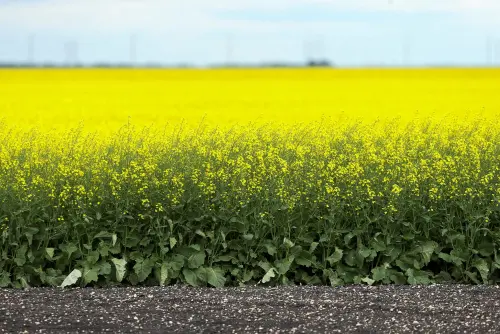China is expected to experience a shortage of rapeseed meal by the third quarter of this year due to Beijing's tariffs on imports from leading supplier Canada. The disruption in trade and lack of alternative sources are likely to exacerbate the deficit.
Following Beijing's imposition of a 100% retaliatory tariff on rapeseed meal and oil from Canada starting March 20, futures on the Zhengzhou Commodity Exchange have surged over 8%. The consultancy Mysteel noted that this tariff policy has disrupted the trade balance significantly.
The unexpected tariffs on rapeseed meal and oil caught the industry off guard, as higher duties were anticipated on the oilseed instead. With China heavily relying on Canada for more than 70% of rapeseed meal imports and nearly all oilseed imports, the impact on feed processors is expected to be considerable.
Rapeseed, also known as canola, is processed into cooking oil and various products like renewable fuels. The remaining rapeseed meal serves as high-protein animal feed and fertilizer.
Despite a current surplus due to substantial imports in the previous quarter, concerns loom over a potential shortage by the third quarter when stockpiles dwindle. While China allows rapeseed meal imports from multiple countries, such as Russia, Kazakhstan, and India, options for alternative supplies are constrained in the global market.
With no other country matching Canada's production scale, China could explore shifting demand to Russia, Ukraine, or India; however, these nations may not fully meet Chinese needs. To bridge the supply gap, the market may turn to domestic rapeseed meal or soybean meal as alternatives, as recommended by industry analysts.
While China has signaled plans to increase rapeseed cultivation this year, the impending shortage underscores the complexities in the global trade landscape surrounding rapeseed and its derived products.
